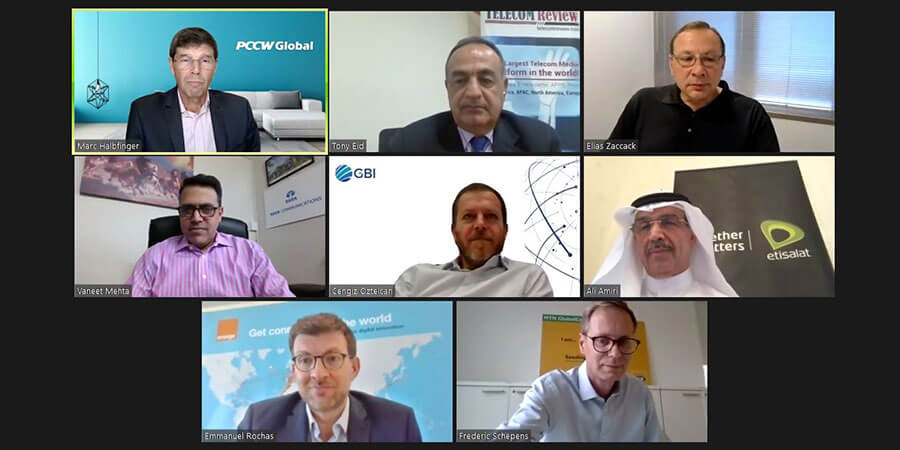The final part of the discussion identified the key challenges the industry faced as a result of COVID-19.
According to PCCW Global’s CEO, Marc Halbfinger, the situation has made him realize the importance of creativity and flexibility to ensure business continuity during times of crisis.
“The one thing that I’m certain of, as a result of COVID-19, is that I’m not certain of anything. The situation has made forecasting an art form.”
Halbfinger said that the company managed to save on typical expenditures such as marketing and travel over the past few months, but other elements were more challenging to deal with as the virus is so difficult to predict.
He took the opportunity to thank everyone in the industry who worked tirelessly to keep the world connected during this time.
“I want to say to colleagues in the ICT industry who have been quietly helping the world during this time; thank you for all you’ve done. We've succeeded in helping the world function well," he said.
Cengiz Oztelcan cited repairs and cuts of submarine cable systems as one of GBI’s most challenging processes brought about by COVID-19.
“Regarding the submarine cables, we were very unfortunate. There were a multiple number of cuts during this period. The repair process took 4x longer during the pandemic as a result of quarantine.”
“If they needed to go to a repair location, they had to be quarantined at the location for two weeks either side. We found ourselves with problems we never thought would exist. Everyone has learned a lot from this pandemic,” he said.
“At the end of the day, resilience and redundancy is the name of the game, especially on the submarine side of the business. A lot of lessons learnt during this time,” Oztelcan said.
Elias Zaccack reported similar issues for SES Networks during the pandemic. He said: “Whenever we needed to do a new installation, we found challenges.”
He agreed that resiliency and redundancy in the network is crucial to tackling these issues so that in case of a network path failure or outage, network availability is ensured.
MTN GlobalConnect's Frederic Schepens said that a shortage of capacity was a real challenge brought about by COVID-19, and will be a problem in the coming years if investments are not made.
“We see a trend where in 2025, with the current capacity, we will have a shortage. This is why we’re investing in submarine cables which give us additional oxygen to preempt catastrophic events.”
Tata Communications’ Vaneet Mehta also noted capacity, or lack thereof, as the main challenge brought about by COVID-19.
“The impact of COVID-19 was we did not have abundant capacity built into our network. These were the main challenges we faced," he said.
Another vertical that took a hit is the enterprise space, where COVID-19 impacted and delayed decision making, and this also affects the industry indirectly.
Mehta said: “No one forecasted this unprecedented time in their business case, so it was a big surprise. Aviation is suffering, and Emirates is one of our clients. We had to give them concessions which affected us in the bottom line as well.”
According to Emmanuel Rochas, "one of the main challenges brought about by COVID-19 was the necessity to adapt to our customers' new needs.”
In a short period of time, COVID-19 has overwhelmed the industry and forced a rethinking of all its processes.
Remote working, video conferencing and global internet communications have quickly become the lifeblood of modern society.
It is evident that once we are through the worst of this virus, the industry will be one of the few still standing and, in many aspects, stronger than before.











